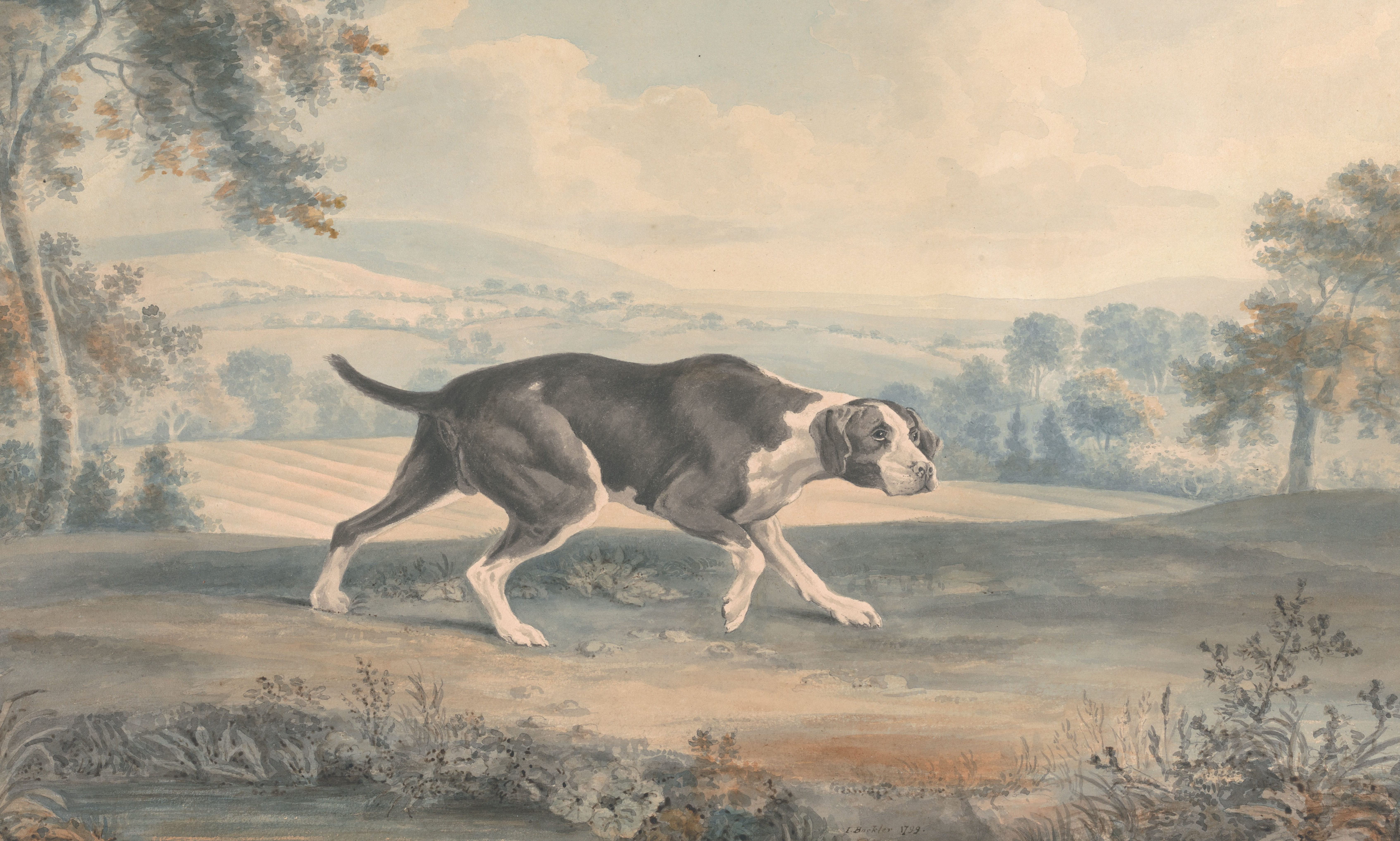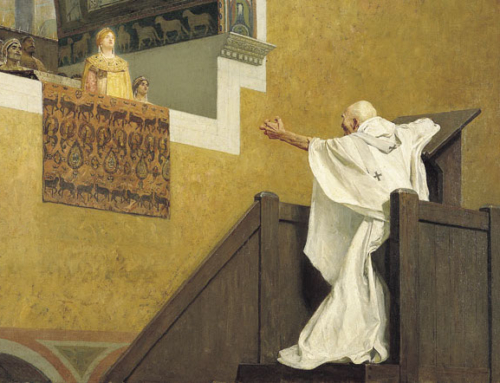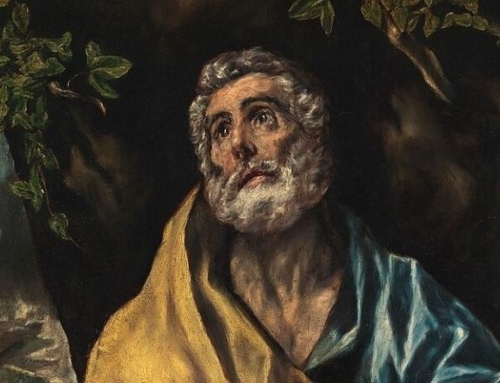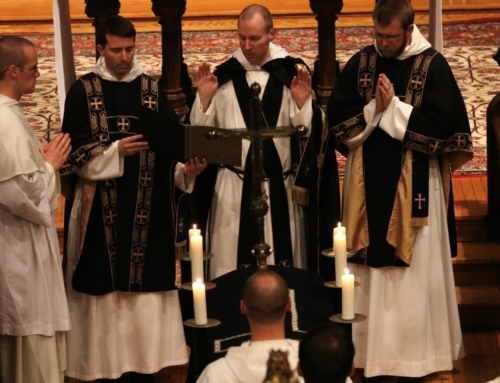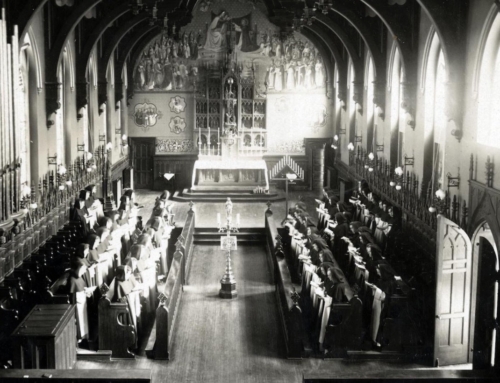Editor’s note: This is the seventh post in our newest series, reflecting on the Hillbilly Thomists’ recent, self-titled album. The series will run each Tuesday and Thursday throughout the Easter season. Read the whole series here. This post concerns the song “I’m a Dog,” which you can listen to here.
The original bluegrass piece “I’m a Dog” written and composed by our very own Brother Justin Bolger so beautifully explains the life and spirit of the Dominican vocation. Its catchy lyrics describe the multifaceted character of the Dominican soul and may be likened to Father Philipon’s wonderful account on the same subject, since both attempt to capture something of the Dominican ideal. Let us not be fooled by the folksy rhetoric; “I’m a Dog” describes the breadth of the Dominican charism and the sublime mission entrusted to the sons of the praedicator gratiae, St. Dominic.
The Dominican soul is animated by an evangelical predisposition born from love of God and love of neighbor. It weeps over “the depths of this desiccation / the height of these scraping towers / the width of this wasting,” and asks the Lord—as did St. Dominic—“What is to become of these poor sinners?” Instead of succumbing to despair, however, it sees “potential for action” according to the way of life envisioned by St. Dominic.
Father Philipon wrote that the Dominican soul is characterized by an obligation to assimilate his life to the life of the founder, and to wield the torch of faith for the glory of God and the salvation of souls. As such, the sons of St. Dominic are often compared favorably with dogs. A dog is obedient, lively, gentle, persistent, etc. This association is, of course, in keeping with the moving vision of Bl. Jane of Osma, the mother of St. Dominic:
“Before his mother conceived him, she saw in a vision that she would bear in her womb a dog who, with a burning torch in his mouth and leaping from her womb, seemed to set the whole earth on fire. This was to signify that her child would be an eminent preacher who, by ‘barking’ sacred knowledge, would rouse to vigilance souls drowsy with sin, as well as scatter throughout the world the fire which the Lord Jesus Christ came to cast upon the earth” (Bl. Jordan of Saxony, O.P., Libellus).
Little did Bl. Jane of Osma know that her son was only the first of many hounds that would set the world ablaze. Little did she know that these Domini canes (“hounds of the Lord”) would exhaust themselves in the service of the Church, “making noise while [they] got time / spreading fire while [they] got earth.” In imitation of her son, they would be zealous for souls, true lights of the world and participants in the holy preaching of Jesus Christ. For eight hundred years and counting, they have addressed the Lord with confidence, “Give me your fire / I’ll do your work.”
Coupled with this apostolic impulse, the Dominican soul is imbibed with the contemplative spirit of its founder. It recognizes the initiating and insistent call of God, who establishes a claim upon the friar: “He [who] took hold of me / Would not let me go / Would not let me go.” In response, it gazes upon the image of the Crucified, taking “hold of him” and “not [letting] Him go.” Even in this vale of tears, it shares an intimate friendship with the Creator, as it grows in knowledge of God and the one whom he has sent.
Lastly, the Dominican soul hears “a siren sounding / through streets and over mountains.” Just as a dog returns to the foot of his master, so does the friar preacher’s soul heed the Word of God. Set loose upon the world, it wields the torch of faith in its mouth, proclaiming the Good News with reckless abandon. This is what is meant by the words “I’m a dog with a torch in my mouth for my Lord.”
The Dominican soul “longs to bear the torch of faith everywhere on land and sea, in every country, to the ends of the earth. This soul belongs to the race of apostles who have been prophetically designated by the Church from their earliest days as champions of the faith and true lights of the world: ‘Pugiles fidei et vera mundi lumina.’ We have here the key to the whole Dominican vocation: to live, defend and propagate the faith in the atmosphere of the Church” (M. M. Philipon, O.P., The Dominican Soul).
✠
Image: John Buckler, The Spanish Pointer,

